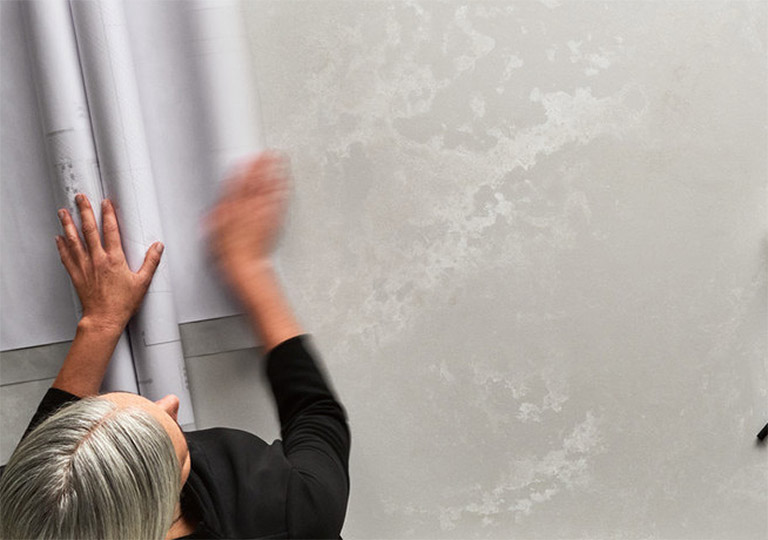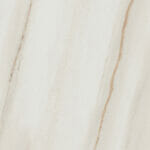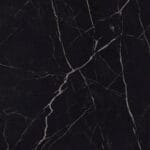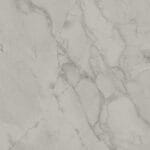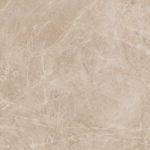On the market, choosing the right one can be tough.
After all, your countertop is an essential part of creating a kitchen you can be proud of. No one understands that better than us at Caesarstone, considering we are the countertop manufacturer of choice for countless interior designers and homeowners.
In this post, we’ll walk you through the strengths and weaknesses of the most popular countertop materials to help you make your pick.
Countertop Types: Materials
Laminate
Laminate countertops are made from sheets of plastic laminate bonded to a particleboard core. They come in a variety of styles and colours.
Pros
Of all the various types of kitchen countertops, laminate is the cheapest. Because of this, budget-conscious developers and homeowners flock to it. Laminate is also very easy to find in a plethora of designs.
Unfortunately, this is where the positives end for laminate countertops.
Cons
As with everything, you get what you pay for. The composition of laminate countertops (sheets of material glued to one another) means they are very susceptible to damage in the form of warping, bubbling, scratches, or splitting.
This damage can be costly and difficult to repair, negating any savings you may have benefitted from initially.
Further, because consumers understand laminate to be a budget type of countertop, it can reduce your home’s desirability substantially. And while you can get laminate countertops that look like quartz, marble, and other premium materials, this resemblance is superficial. You won’t fool anyone into believing you’ve splurged on one of the premium types of countertops
Marble
Marble has been known as one of the most luxurious types of kitchen countertops for decades. It is a natural stone that gets removed from quarries and then processed further to create slabs for countertops.
Pros
There’s no denying marble’s classic, luxurious aesthetic. Cementing this aesthetic is the fact that some of the most iconic sculptures in the world were crafted out of marble.
Cons
Marble is expensive to buy and maintain. The rock is porous, which means it can soak up stains with ease if you neglect to reseal it on a regular basis. It also has a lower resistance to scratching than some other types of stone. If you manage to scratch, stain, or chip marble, the cost to repair it will be quite high.
Lastly, laminate develops a patina over time that some owners do not like.
All of these cons work out to laminate being one of the higher-maintenance types of countertops.
Other Types of Stone Countertops
While we already covered marble, there are plenty of other stone countertops worth mentioning. Since they all have similar positives and negatives, we’ll lump them together.
These types of stone countertops include:
- granite
- quartzite
- soapstone
- travertine
These natural stones all originate in quarries throughout the world, including — in some cases — the United States.
Pros
As with marble, the various types of stone countertops all possess a striking natural beauty. Because no two slabs are identical, some buyers also enjoy the idea of having a one-of-a-kind countertop.
Cons
For most buyers, the cons of natural stone countertops far outweigh the pros. Natural stone is very difficult and costly to maintain. Further, materials like granite have declined substantially in terms of popularity. You can read more in our direct comparison of quartz vs granite.
Quartz
Quartz countertops are arguably the most versatile and sought-after premium surfaces today. At Caesarstone, we produce quartz using roughly 90% loose quartz. The rest is comprised of various resins. This mixture is moulded into the traditional countertop slab shape.
Because of the specialized process used to produce quartz countertops, the material is known as “engineered stone.”
Pros
While natural stones like marble come in a limited range of appearances, there are many different types of quartz countertops. At Caesarstone, we sell everything from white marble quartz to surfaces resembling concrete, allowing our quartz to fit into many kitchen types.
This is one of the reasons quartz has become the countertop material of choice for designers and consumers seeking premium quality.
Quartz is also remarkably durable. For one, it never needs resealing. The material isn’t porous, allowing it to resist stains better than materials like granite and marble. It’s also harder than those materials, more heat resistant, and easy to maintain.
All of these benefits combine to produce a high level of desirability for quartz, which in turn generally enhances the material’s resale value when used in kitchen countertops..
Cons
Quartz’s primary downside is cost. Depending on what type of quartz you get, it can be as expensive (and sometimes more-so) as granite. Over the long haul, however, quartz pulls far ahead in terms of value since it does not require resealing and is generally lower-maintenance than other types of premium countertops.
Lastly, while quartz is more stain-resistant than many other types of countertops, liquids like wine and tomato sauce can still leave marks.
Resin Countertops
This is one of the more unconventional kitchen countertop types. They often come in kits, making them popular among DIY-ers. It’s important to understand their downsides before you bite off more than you can chew, however. You can read about these downsides in great detail here but continue reading for an overview.
Pros
Because resin countertops are available in DIY kits, they can be a fun project for creatively-minded (and very determined) people. The opportunity to craft your own countertop can be very exciting.
Resin countertops are also fairly durable and resistant to stains, burns, and scratches.
Cons
Epoxy countertops are messy and finicky. All of the work needs to be done on-site, directly on top of your surface. The presence of epoxy countertop kits on the market also deceives many people concerning just how easy they are to install yourself.
On the contrary, achieving flawless results requires great attention to detail and prior experience with resin. Lacking those two things, you’re likely to end up with a surface that contains imperfections such as bubbling.
If you’re planning on just outsourcing the work, you’re in for a surprise there as well. While the kits themselves only cost between $100 to $200 on average, the degree of skill required to install a resin countertop means you’ll pay someone as much as $100 per square foot to do it. That price is on-par with good-quality natural stone countertops.
Wood (Butcher’s Block) Countertops
Butcher’s block countertops are made from slabs of wood. Check out our full article about the pros and cons of butcher’s block countertops.
Pros
There’s no competing with the characteristic look of butcher’s block countertops. No other material can adequately mimic it. Wood, given how soft it is, is also very easy on knives, making it a popular countertop choice for chefs in restaurants.
Cons
To say wood is porous would be an understatement. As a countertop material, it can harbour moisture and bacteria more severely than any other material, making it a very impractical surface.
While wood is easy on knives, it also scratches very easily. To make matters worse, it’s prone to warping due to humidity.
All of these downsides are made even worse when you consider the high cost of many types of wood used to make countertops. It’s simply not worth it unless you have a very practical reason for needing a soft countertop material.
Concrete Countertops
Concrete countertops are a fairly recent phenomenon. The surfaces are made by pouring concrete into the desired shape.
Pros
Advancements in concrete technology mean that concrete countertops are now lighter than they used to be. This increases their practicality.
Concrete, as one of the most popular construction materials, is also very durable. It’s very hard to chip or crack concrete without also breaking whatever smashed into it.
Cons
Concrete can look and feel unrefined. It doesn’t exude luxury as its quartz counterparts do. This is disappointing for many people considering concrete costs within the same ballpark of more refined materials like quartz.
Concrete is also porous. Much like with natural stone countertops, you need to reseal it regularly or else it will stain.
Solid Surface Countertops
Solid surface countertops are made from entirely synthetic materials. Typically, they are acrylic. The most popular brand name in solid surface countertops is Corian. Check out our direct comparison of quartz and Corian here.
Pros
Solid surface countertops are fairly affordable and come in a variety of styles. Appearance-wise, they’re generally better than laminate, offering more convincing (although still not entirely accurate) recreations of materials such as laminate and granite.
Cons
Solid surface countertops are not as resistant to heat or scratches as quartz. While they are cheaper than quartz and natural stone, many consumers may find it worthwhile to spend the extra money per square foot in order to get a higher-quality material.
Countertop Types and Prices
Now that you know the pros and cons of each of the kitchen countertop types, let’s look at the countertop types and prices. All prices quoted are per square foot unless otherwise noted.
- Laminate: $20-$50
- Marble: $40-$140
- Quartz: $100-$150
- Stone: $40-$200
- Resin: $100-$200 per kit
- Butcher’s Block: $35-$200
- Concrete: $70-$150
- Solid Surface: $75-$120
There are many factors that can drastically increase your costs beyond the averages quoted above. Most materials come in varying levels of quality and rarity. There are even some “premium” laminate variants
Frequently Asked Questions
What are some types of countertop materials?
There are generally two main kitchen countertop types: engineered and natural. On the engineered side, you have materials such as:
- quartz (widely hailed as the superior countertop material)
- solid surface
- laminate
- concrete
On the natural side, you have materials like:
- granite
- marble
- gabbro
- quartzite
How many types of quartz countertops are there?
Quartz is really only limited by what designers are able to craft. At Caesarstone, we offer a HUGE range of quartz. We have quartz resembling granite, marble, concrete, you name it. You can learn more by visiting our Collections page.
Which is better for countertops — quartz or granite?
Experts consider quartz to be a better countertop material. It is more stain-resistant and cost-effective in the long run. Granite is also waning in popularity, which has affected its resale value substantially.
What is the most affordable countertop?
Laminate is among the cheapest countertop materials. Keep in mind, however, that it also damages more easily than premium countertop materials (i.e. Caesarstone quartz). Consequently, you may spend more on repairing and replacing quartz countertops over the long haul than you would if you purchased a higher quality material upfront.
What is the best choice for kitchen countertops?
If you’re looking for a combination of quality, durability, and great value, it’s hard to beat Caesarstone quartz. Caesarstone quartz countertops come in a variety of patterns, making them ideal for just about any kitchen style you can envision.
What is the easiest countertop to maintain?
Caesarstone quartz is among the easiest types of countertops to maintain. For starters, Caesarstone quartz doesn’t need to be resealed. It’s also non-porous and therefore better resists staining. As long as you clean spills promptly, your Caesarstone quartz countertop should last years.
What is the most heat resistant countertop?
Granite is among the most heat resistant materials used to create kitchen countertops. It’s worth pointing out, however, that while the stone itself resists heat, the sealant may not be as resilient.
For all intents and purposes, you should have no problem using a Caesarstone quartz countertop. It offers plenty of heat resistance – just use common sense and place trivets underneath pots that have just come off the stove.
